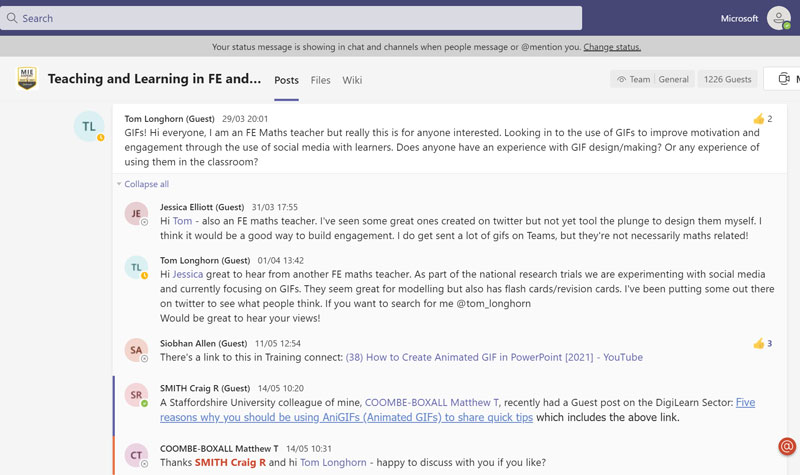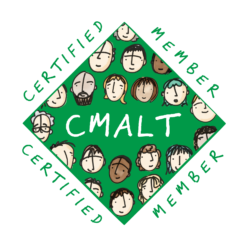In my role as a Learning Technologist, communication is very important because I am involved with supporting so many different people:
- University lecturers in the Institute of Policing
- Work-based education officers in the Institute of Policing
- Police trainers in Staffordshire Police, West Mercia Police, West Midlands Police and Warwickshire Police.
- Student police officers in the police forces named above
- Administrative staff in the Institute of Policing
Demonstrating Knowledge and Skills in Communication
Training University lecturers
Training university lecturers is one way I demonstrate my knowledge and skills in communication through working with others. I have supported the inductions of all new Institute of Policing staff and delivered training sessions on Microsoft Teams, Forms, Sway and PowerPoint for existing lecturers. I list other common topics I deliver training on, how staff book digital support sessions, and reflection in Core Area 1: Subsection 1c.
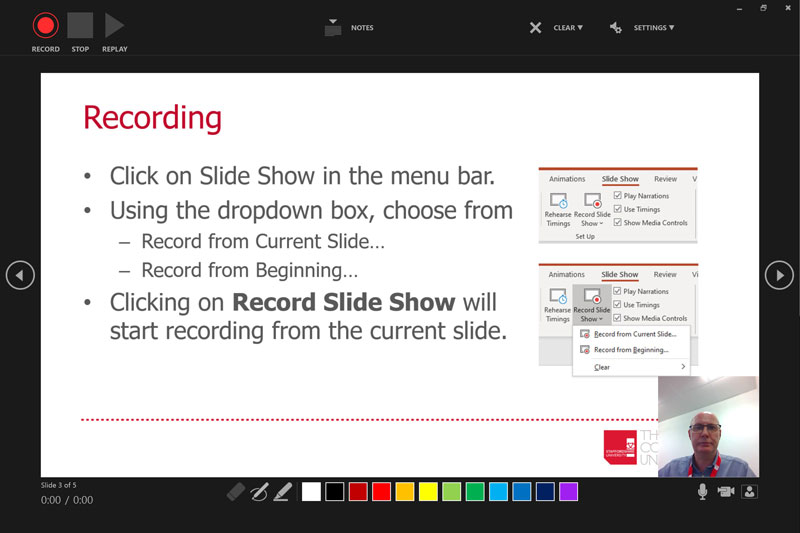
PowerPoint
Working with lecturers to solve problems
The Director of the Institute of Policing wrote the following Team Nomination for myself and a colleague, Policing lecturer Martin Steventon, as part of Staffordshire University’s Celebrating Success Awards. This explains what we did:
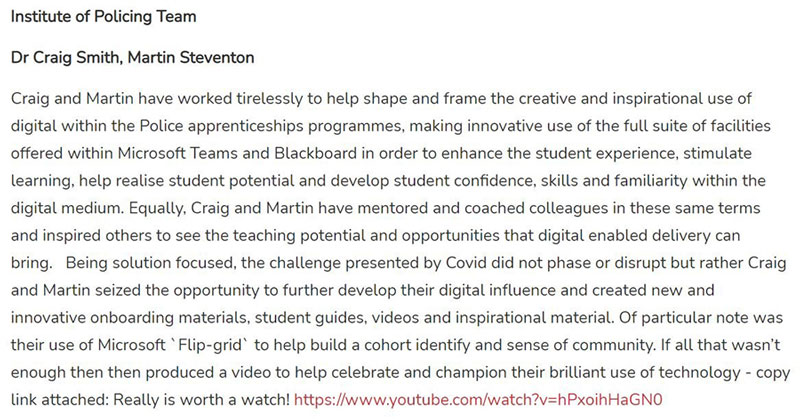
I have learnt that I enjoy problem-solving and, as it says in the write-up, the challenge presented by Covid didn’t phase me. I enjoyed the pressure of working over the weekend preceding the lockdown which began on 23rd March 2020. Knowing that I was responsible for not only getting the students online, but also having the Chief Constable of West Midlands Police join them on the Microsoft Team that I had set up and then seeing this on BBC Midlands Today was a very proud moment. Here is a short video clip of the news report:
@RetInsp Did you see yourself on TV earlier? @IoPStaffs pic.twitter.com/lQXagw2nun
— Craig (@DrCraigRSmith) May 4, 2020
Working with police trainers to solve problems
More of my problem-solving skills were shown in communications with West Mercia Police, and are referred to in the following email. I helped them set up a process that enabled students to access learning that preceded their start date with the University.
The strong working relationship benefitting both organisations is mentioned in the email which is important, not just from the point of view of renewing contracts, but also because I have been invited down to experiment with some video work when restrictions are lifted. It has had a positive impact on the student officers’ learning because, as mentioned, they have been able to access learning without encountering problems.

Acting as an interface to police forces
I have delivered face-to-face training sessions to police trainers in our four partner forces. Since the COVID-19 pandemic, face-to-face training sessions haven’t been possible and so I created the IoP Digital Support module to offer advice and useful tools, such as video help guides, as well as allowing the Institute of Policing and police trainers across 4 forces to collaborate and share best practice. I have talked about this in more detail in Core Area 1: Subsection 1c.
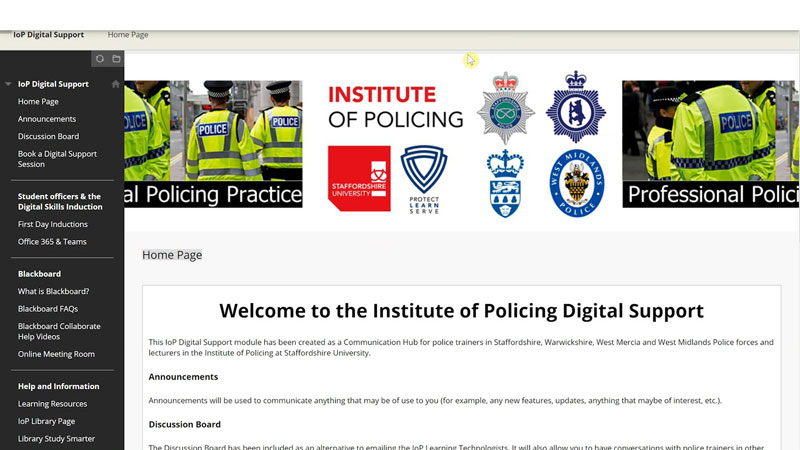
I added a Discussion Board to encourage collaboration and sharing of ideas but, unfortunately, this hasn’t worked as well as I’d hoped. What I have decided I will do differently is replace the Discussion Board with a link to a Microsoft Team that all police trainers will be able to access. Hopefully, the use of tools such as ‘likes’ and emojis, and the fact that most of them already use Teams, will mean that they will be more likely to engage. I also tweeted about this:
This @Blackboard module will be rolling out soon which will offer advice and useful tools, such as video help guides, as well as allowing @IoPStaffs and police trainers across 4 forces to collaborate and share best practice. @StaffsUniLPF @StaffsUni #ProudToBeStaffs pic.twitter.com/QwQVpa7SCY
— Craig (@DrCraigRSmith) March 5, 2021
I have good working relationships with police trainers and we work very closely because I am the person who gets each cohort of students online for them, and so I’m in contact with the students before them. In addition to my communication via the Digital Support module, some police trainers communicate with me on Teams chat, either for advice or for technical support. Here’s one example:
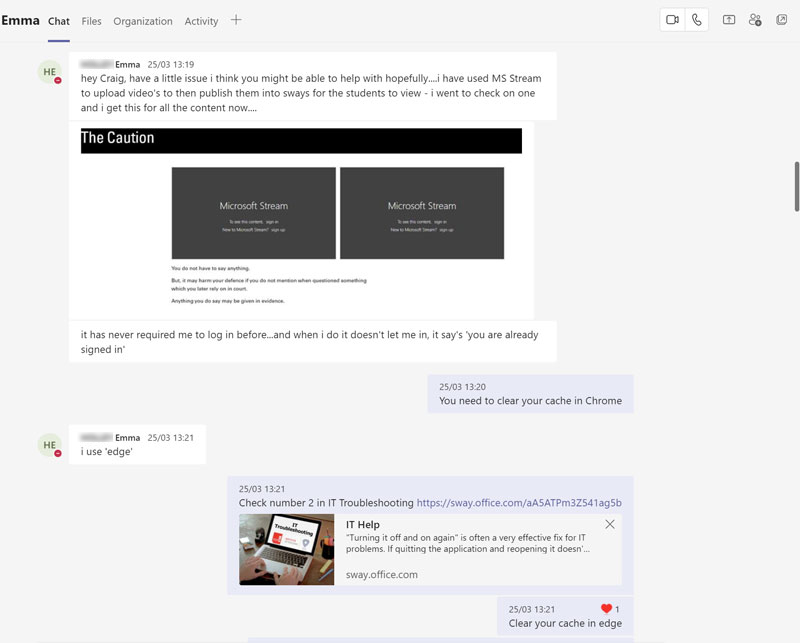
Disseminating my practice: Conferences
Martin Steventon and I have presented our work internally within the School of Law, Policing and Forensics at Staffordshire University. I talked about the online induction process involving the Digital Skills Induction on Blackboard and Microsoft Teams and Martin spoke about his use of Flipgrid:
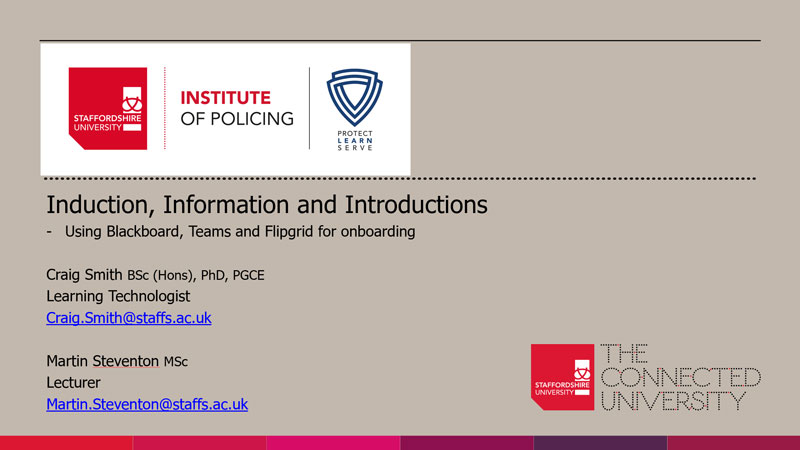
We also presented this at the Digital Skills Conference, to police trainers across our four partner police forces on 10th November 2020:
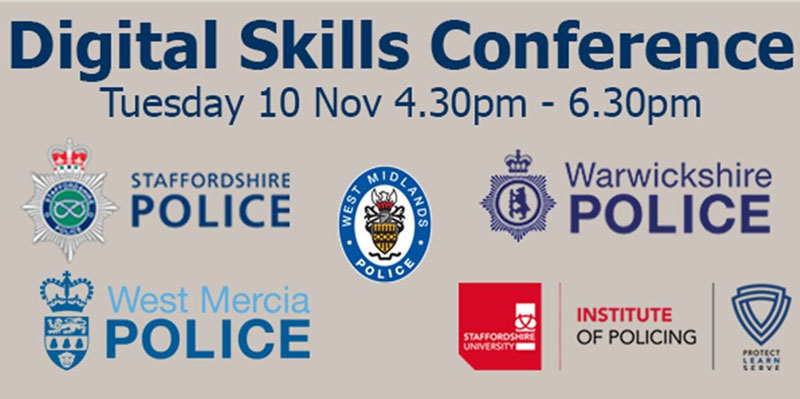
Finally, we also presented our work externally to the DigiLearn Sector, run by The University of Central Lancashire, where again I talked about Online Inductions and Martin talked about Flipgrid:
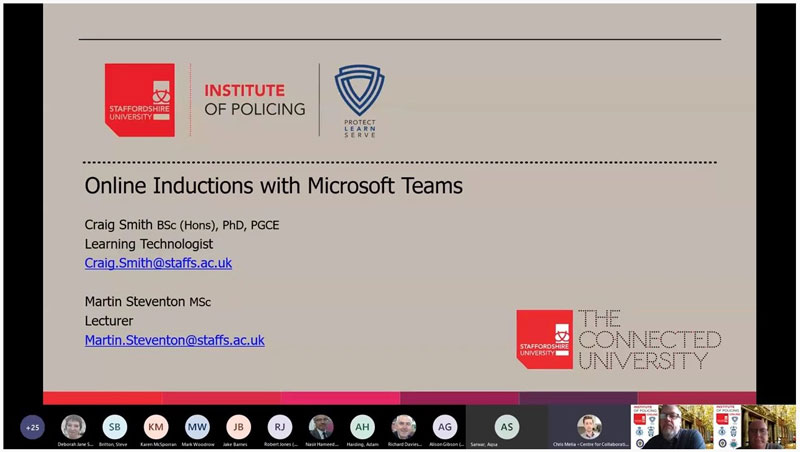
Selecting appropriate forms of communication
I have learned a great deal about learning technologies over the past couple of years as a result of conversations I have had with other learning technologists at Staffordshire University. I have learnt from others on platforms such as Twitter and external Microsoft Teams organisations:
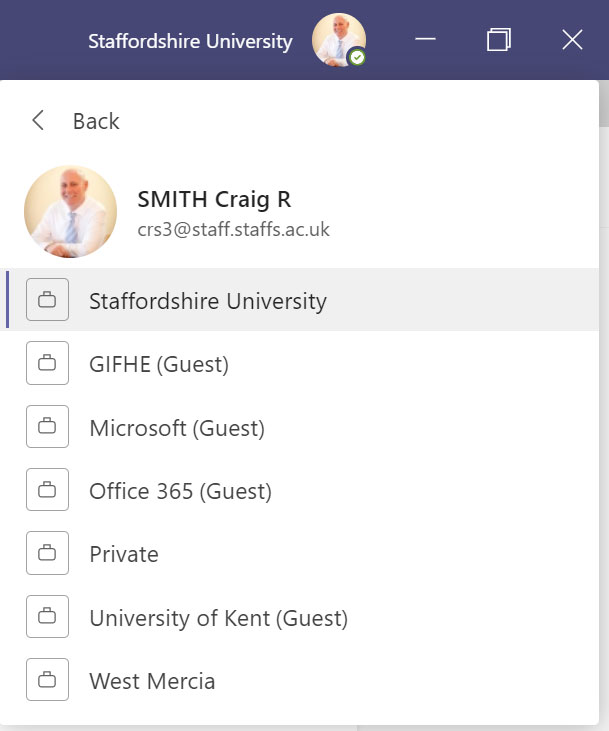
I have also both learnt from other people and shared what I’ve done within UCLAN’s DigiLearn Sector (Office 365 in the above organisations). I attend conferences related to my role and in 2020 I attended the JISC DigiFest event where I was able to meet and learn from other learning technologists and share my practice.
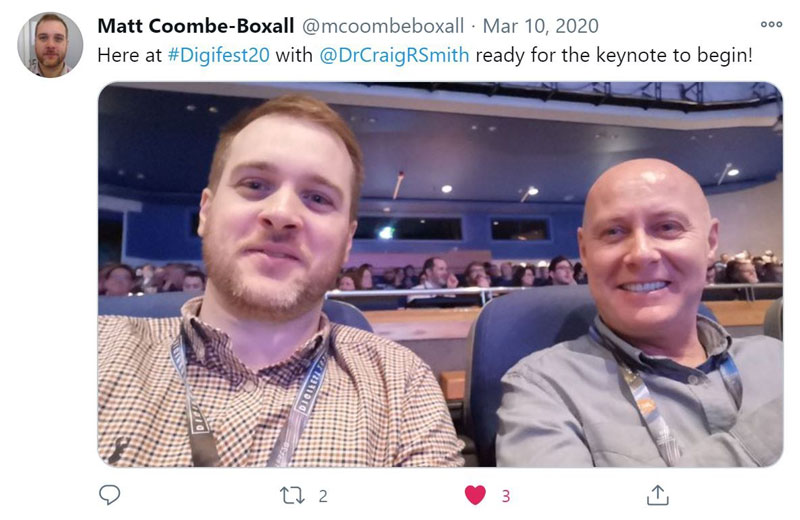
Back in September 2019, I didn’t know anything about Microsoft Teams. Since then, there have been very many updates and I have had to keep up-to-date with them all in order to support staff. Now that I am an MIE Expert, and have access to the MIEE Microsoft Team, I have found it a very good place to keep my knowledge up-to-date. Here, for example, is a post by Mike Tholfsen who is usually one of the first people to post videos on new Microsoft features.
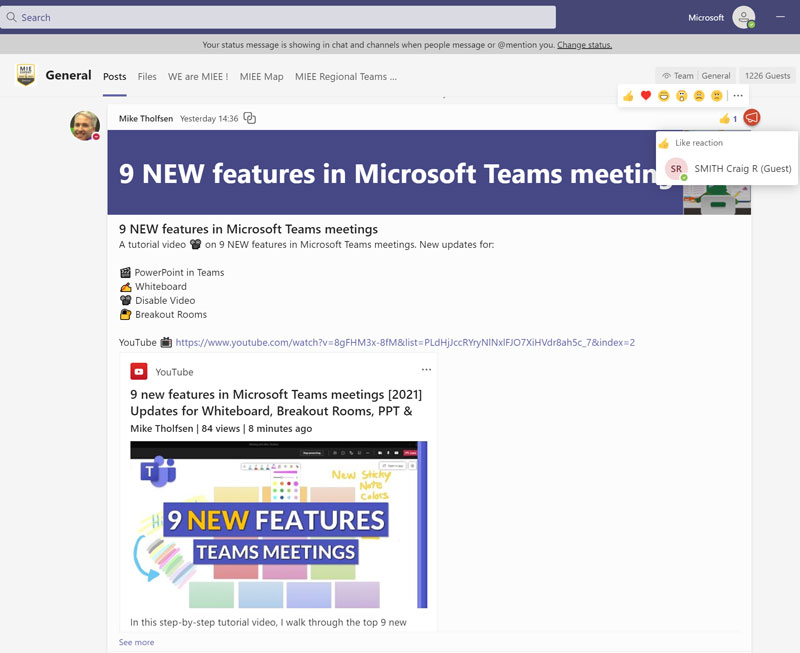
I often engage using reaction emojis, and I will sometimes post comments. Here’s an example of where I used the MIE Expert Team to help a Maths teacher by tagging in a colleague who I knew would be able to help him with a query he had about animated GIFs, as I knew my colleague had recently written a blog on the topic:
